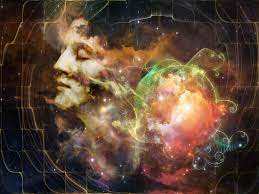Your splintered, sneaky, disguised will
Would you know who is the greatest saint in the world? It is not he who prays most or fasts most; it is not he who gives most alms or is most eminent for temperance, chastity, or justice; but it is he who is always thankful to God, who wills everything that God wills, who receives everything as an instance of God’s goodness and has a heart always ready to praise God for it. WILLIAM LAW
Moreover, what we think is very much
a matter of what we wish and seek to think, and what we feel is very much a
matter of what we wish and seek to feel. In short, the condition of our mind is
very much a matter of the direction in which our will is set.
It is character that explains why we use credit reports and resumes and letters of reference to make decisions about people. They do not just tell what someone did, but they reveal what kind of thoughts, feelings, and tendencies of will that person habitually acts from, and therefore how he or she will act in the future.
But character can be changed. And that, of course, is what spiritual formation in Christlikeness is about.
Single-minded and joyous devotion to God and his will, to what God wants for us—and to service to him and to others because of him—is what the will transformed into Christlikeness looks like.
Character is revealed most of all in what we feel and do without thinking. But to a lesser extent it is revealed in what we repent of after thinking and what we then do as a result of repenting. Thought, feeling, and will give rise to character.
For the human will in the individual is not only precious, it is a problem. From the strictly human point of view it is a devastating and unsolvable problem. Everyone has the experience of willing in a way that is contrary to other choices they have already made or ones that should be made. Human life in its usual forms is characterized by conflict within the will and between wills. But such a statement does not do justice to the facts. What we call “civilization” is a smoldering heap of violence constantly on the verge of bursting into flame. That is the true picture of the fallen human will.
THE SPLINTERED WILL
THE DRIVE TOWARD
GOOD, which is naturally implanted in the human will by its Creator, is
splintered, corrupted, and eventually turned against itself as a result of
practical self-deification and all that accompanies it. The question, “What
good can I bring about?” is replaced by “How can I get my way?” Manipulation,
deception, seduction, and malice replace transparency, sincerity, and goodwill,
as exaltation of self replaces submission and service to God.
Whereas in prior times a focused and coherent will was assumed to be necessary to human freedom, today the assumption is that freedom only comes with an incoherent and vagrant will. Truth, by contrast, is regarded as bondage and a rigorous identity as a prison that prevents me from endlessly creating myself and re-creating myself.
It has its choice—though it does not have its choice of the consequences of choosing what it wants. And one of the consequences of choosing what one wants without regard to God’s will is enslavement to one’s own self-conflicted will. On the path of self-will people eventually come to the place where they cannot choose what God wants and cannot want God.
This is the result of pretending to
feel and think one way while acting in another. Often the deception involved is
self-deception. Our pride will constantly trap us between desire and fear.
Rather than surrender our desire, we will do what we want but conceal it
because of fear of the consequences of being known. And perhaps then we will
also try to conceal our fear because of our pride. We will try to pretend that
there is “nothing going on” at all. pp. 142-145 REVEALING SOURCE




Comments
Post a Comment